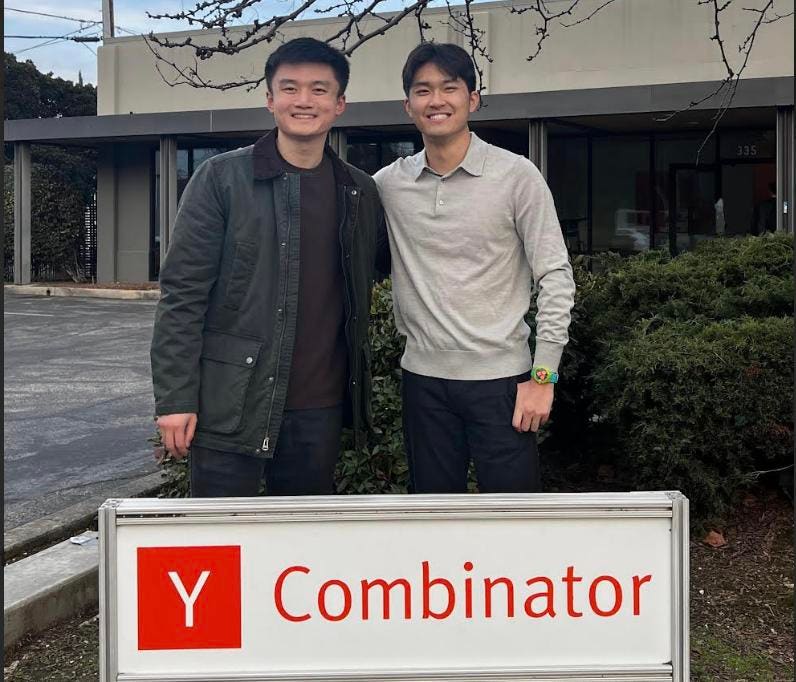The Wild West Of AI Search And How One Startup Is Helping Brands Navigate The Post-Google Era
Businesses must adapt to this new trend by optimizing their online presence for AI assistants like ChatGPT to stay relevant and competitive in the digital landscape. This shift in consumer behavior highlights the importance of understanding and leveraging AI technology to reach and engage with customers effectively. Companies that embrace this change can potentially gain a significant advantage over their competitors in the market. It is crucial for businesses to invest in AI-powered tools and strategies to enhance their online visibility and improve customer interactions. In this evolving digital age, adapting to the use of AI assistants is key for businesses to thrive and succeed in the increasingly competitive online marketplace.

Athena Founders
The death of Google search as we know it may be greatly exaggerated, but the writing is on the wall. As millions of users increasingly turn to ChatGPT and other AI assistants for everything from restaurant recommendations to product research, a fundamental shift is underway in how consumers discover and evaluate brands.
For companies that have spent decades mastering the art of Google SEO, this transition represents both an existential threat and an unprecedented opportunity. Enter Athena, a five-person startup that claims to have cracked the code on what founder and CEO Andrew Yan calls "Gen AI Engine Optimization" – essentially SEO for the age of artificial intelligence.
Athena has raised 2.2 million dollars from Y Combinator, FCVC, Red Bike Capital, Amino Capital, and various search and SEO industry angels. The company currently serves over 90 customers across retail, e-commerce, and B2B SaaS sectors has emerged from stealth just months ago.
Yan's Journey and Vision
Yan's journey to founding Athena began during his tenure on Google's search information acquisition team, where he witnessed firsthand the tectonic shifts reshaping how people find information. "I realized that search and shopping and how people are discovering products is about to massively change and do this 180-degree turn," he explains.
People are using ChatGPT like a personal assistant, and they're trusting it more than Google – it's becoming more persuasive, and people are relying on it even more to make decisions. This insight led Yan to a sobering realization: hundreds of billions of dollars in brand value that companies have built through traditional Google advertising and SEO could be at risk.
Athena's Approach
What sets Athena apart in this emerging market isn't just its technology, but its execution speed. While established SEO platforms like Ahrefs and SEMrush attempt to adapt their traditional tools to the AI era, and newer competitors like Orderly race to build similar solutions, Athena has focused on delivering what Yan calls "the fastest time to value" – customers can sign up and receive actionable insights within minutes.
The company's approach centers on four key pillars: Gen AI monitoring, Gen AI insights, actionable recommendations, and attribution of impact. This last component may be the most crucial differentiator.
Athena's Business Model Innovation
Perhaps more intriguing than Athena's technology is its business model innovation. Rather than following the traditional SaaS playbook of flat monthly fees, the company has adopted a credit-based system that scales with customer success.
Users pay a platform fee and receive an initial bucket of credits, but can purchase additional credits as they see value and want to expand their AI search optimization efforts. This approach reflects a broader trend in AI-powered software toward outcome-based pricing models, though it requires educating both customers and investors accustomed to predictable monthly recurring revenue.
Athena's Growth and Future
Athena's rapid growth exemplifies what Yan sees as a fundamental shift in startup dynamics. The company has achieved its traction with just five employees, all based in San Francisco, leveraging AI tools like Cursor, Windsurf, and Claude to punch above their weight class. This efficiency reflects what some observers call "vibe coding" – the ability of small teams to achieve outsized impact through AI-powered development tools.
Whether Athena succeeds or fails, the company represents a bet on an inevitable transition. As AI assistants become more sophisticated and users grow more comfortable relying on them for high-stakes decisions, the ability to influence these systems will become increasingly valuable. The question isn't whether this transformation will happen – it's who will emerge as the winners when the dust settles.
For brands, the choice is becoming clear: adapt to the new reality of AI-mediated discovery, or risk becoming invisible to a generation of consumers who see ChatGPT, not Google, as their primary research tool. Companies like Athena are betting that this transition creates a multi-billion-dollar market opportunity.
Time will tell if they're right – but in the wild west of AI search, the early movers may have the best chance of staking their claim to valuable territory.

